Welcome User
Relevance
Consult Infertility Specialists Online - Best IVF Doctors (64 doctors)

Dr. Sreeparna Roy
Obstetrician and Gynaecologist
8 Years • MBBS , MS (OBSTETRICS & GYNAECOLOGY), Fellowship in Infertility, Endoscopy & Ultrasonography), Fellowship in Laparoscopy & Hysteroscopy,DRM
Kolkata
Dr Utsa Basu Clinic, Kolkata

Dr. Abhilasha Kumar
Obstetrician and Gynaecologist
30 Years • MBBS, MS, DCG(Obstetrician and cosmetic gynaecologist)
Kolkata
A4 Clinic, Kolkata

Dr. Gautam Chopra
Urologist
4 Years • MBBS, MS (General Surgery), DNB (Genito-Urinary Surgery )
Hoshiarpur
Shivam hospital, Hoshiarpur
Dr. Arpita Jain Garg
Obstetrician and Gynaecologist
3 Years • MBBS, DNB (Obstetrics & Gynaecology), PGDHHM
Ahmedabad
MH AHMEDABAD, Ahmedabad
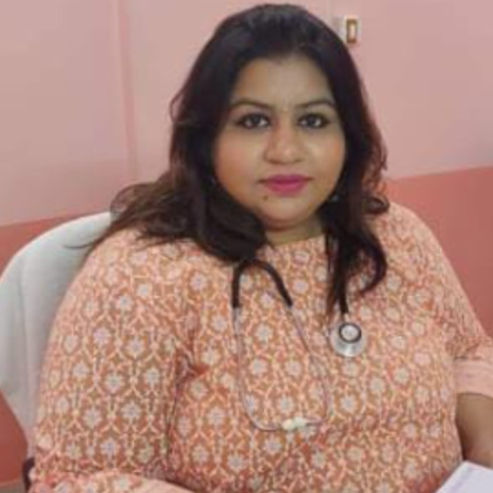
Dr. Payel Singha Ray
Obstetrician and Gynaecologist
10 Years • MBBS, , DGO
Barrackpore
Sova Women's & Fertility Clinic, Barrackpore
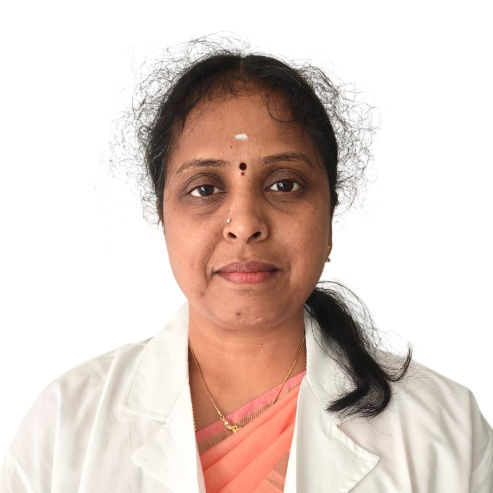
Dr. Ramya Srikanth
Obstetrician and Gynaecologist
14 Years • M.B.B.S, D.N.B.(OG), MNAMS, DRM (Germany)
Chennai
Apollo Clinic Velachery(Opp to Phoenix mall), Chennai

Dr. Shruti I
Obstetrician and Gynaecologist
7 Years • MBBS, MS (OBSTETRICS & GYNAECOLOGY)
Bangalore
Apollo Clinic Bellandur, Bangalore
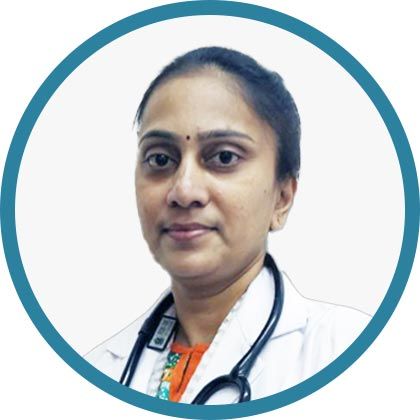
Dr. Jyothi Rajesh
Obstetrician and Gynaecologist
22 Years • MBBS, DGO(DNB)
Bangalore
Apollo Clinic Bellandur, Bangalore
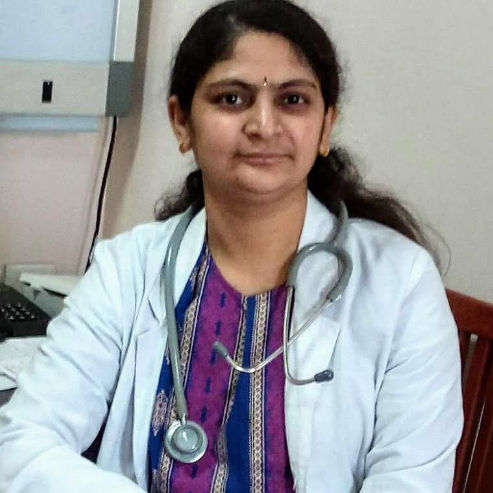
Dr. Saraswathi Girish
Obstetrician and Gynaecologist
21 Years • MBBS , DNB,FRM(Fellowship in Reproductive Medicine)
Bengaluru
Apollo Clinic, Sarjapur Road, Bengaluru
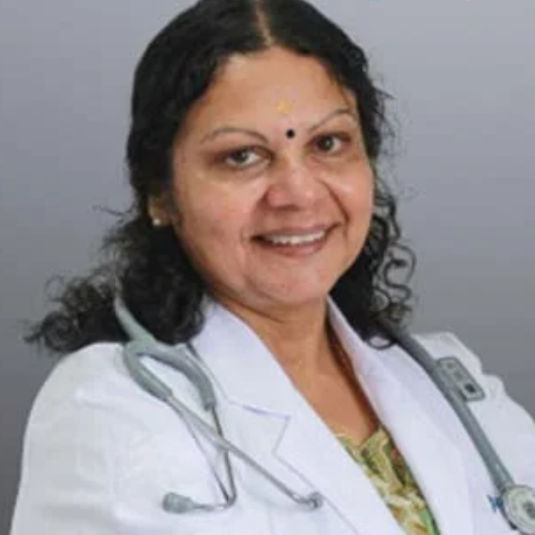
Dr. Dershana P Rajaram
Obstetrician and Gynaecologist
35 Years • MBBS, DGO
Bangalore
Apollo Clinic Bellandur, Bangalore
Infertility
Booking an appointment with a top infertility specialist is now easier than ever with Apollo 24|7. Our user-friendly platform allows you to schedule online or phone consultations with trusted infertility experts at your convenience. With a wide network of renowned hospitals and clinics across the country, Apollo 24|7 ensures that you have access to the best infertility care. Our experienced specialists are dedicated to helping you navigate your fertility journey, offering personalised treatment plans and support every step of the way. Don't wait any longer – book your appointment with an infertility specialist today and take the first step towards building your family.
What is Infertility?
Infertility is a medical condition characterised by the inability to conceive after one year of regular, unprotected sexual intercourse. It affects both men and women and can result from various genetic, physiological, or environmental factors. This speciality is vital in healthcare as it addresses both the physical and emotional aspects of reproductive challenges.
The field of infertility specialises in understanding, diagnosing, and treating the underlying causes of infertility, employing a range of treatments from medication and surgery to advanced assisted reproductive technologies like in vitro fertilisation (IVF).
By tackling these issues, infertility specialists play a crucial role in helping individuals and couples achieve their reproductive goals, thereby contributing significantly to mental and emotional well-being.
Who is an Infertility Specialist?
An infertility specialist, also known as a reproductive endocrinologist, is a physician who has undergone extensive training in managing disorders related to human reproduction, including issues of fertility, menstrual health, and hormonal dysfunctions. These specialists typically complete a residency in obstetrics and gynaecology followed by a fellowship in reproductive endocrinology and infertility.
They are adept at evaluating and treating conditions that impair fertility such as polycystic ovary syndrome (PCOS), endometriosis, and male factor infertility. Infertility specialists use a combination of medical assessments and treatments to assist patients who face challenges in conceiving, providing both medical and sometimes surgical interventions to enhance fertility.
What Does an Infertility Specialist Do?
The infertility specialist’s work combines clinical expertise with compassionate care, focusing on a range of reproductive disorders.
Key Responsibilities:
Diagnosis of Infertility Causes: The specialist conducts thorough evaluations to identify the root causes of infertility in patients. This involves a combination of physical examinations, medical histories, and sophisticated diagnostic tests such as hormonal assays, ultrasound imaging, and, at times, laparoscopic surgery.
Treatment Planning: Based on the diagnosis, they develop tailored treatment plans that may include pharmacological treatments, surgical interventions, and assisted reproductive technologies (ART) such as IVF and intrauterine insemination (IUI).
Patient Counselling: Providing emotional and informational support to patients is crucial. Specialists discuss potential treatment paths, success rates, and emotional considerations, helping patients make informed decisions.
Research and Development: Many specialists contribute to advances in reproductive medicine by conducting research and implementing new technologies and treatments in their practice.
Daily Activities:
Consultations: Meeting new and returning patients to assess progress or modify treatments.
Procedures and Treatments: Performing or supervising medical procedures and treatments.
Collaboration: Working closely with other healthcare professionals, including nurses, general practitioners, and urologists, to provide holistic care.
Follow-Up Care: Monitoring the outcomes of treatments and making necessary adjustments to enhance effectiveness.
What are the Other Sub-specialities of Infertility?
Infertility encompasses a range of sub-specialities, each addressing specific aspects of reproductive health. Understanding these areas can help individuals seeking specific treatments or expertise.
Reproductive Endocrinology and Infertility: This sub-speciality deals with hormonal functioning as it pertains to reproduction and fertility, offering treatments for hormonal disorders like PCOS, often managed by a PCOS specialist.
Andrology: Focused on male reproductive health, andrology includes the assessment and treatment of male infertility, often involving treatment for conditions that affect male fertility and sexual health.
Pediatric and Adolescent Gynecology: This area addresses reproductive health issues in children and adolescents, ensuring early detection and management of conditions that could affect fertility in adulthood.
IVF and Assisted Reproductive Technology (ART): Specialists in this field use techniques like IVF to assist in conception. They manage the entire process, from egg retrieval to embryo transfer.
Male Infertility: This sub-speciality specifically addresses infertility issues in men, including low sperm count or motility problems, often requiring collaboration with andrology experts.
Female Infertility: Focusing exclusively on female reproductive issues, this includes treatment for ovulation disorders, fallopian tube damage, or uterine conditions often handled by endometriosis doctors.
Fertility Preservation: Important for individuals who face fertility risks due to medical treatments like chemotherapy, this sub-speciality offers solutions such as egg or sperm freezing.
Genetic Counseling for Infertility: Genetic counsellors provide information and support to couples who may be at risk of passing genetic disorders to offspring, an essential component of IVF programs.
Donor Egg and Sperm Programs: These programs are crucial for individuals who cannot use their own eggs or sperm. Coordination with donor programs ensures that patients have access to screened and suitable donor materials.
Acupuncture and Alternative Therapies in Infertility: Increasingly popular, these therapies complement traditional treatments, aimed at improving overall fertility and well-being.
Each sub-speciality contributes uniquely to managing infertility, offering hope and solutions to those facing challenges in conceiving. This integrated approach ensures that every patient, whether consulting an infertility doctor or other specialists, receives tailored and comprehensive care.
What are the Infertility Examinations or Tests Performed by the Infertility Specialist?
Infertility specialists employ a range of diagnostic tests to pinpoint the causes of infertility and devise appropriate treatment strategies. Understanding these tests can help individuals prepare and make informed decisions when they book infertility specialist.
Semen Analysis: This initial test for male infertility evaluates sperm count, motility, and morphology, providing insights into potential issues affecting male reproductive health.
Ovulation Testing: Women may undergo hormone tests to confirm ovulation, using either blood tests or home ovulation kits to track hormonal changes.
Hysterosalpingography: This procedure uses a dye visible on X-ray to examine the uterus and fallopian tubes, identifying blockages or abnormalities that could impede conception.
Transvaginal Ultrasound: A transvaginal probe provides images of the uterus and ovaries, checking for conditions like fibroids or polycystic ovary syndrome (PCOS).
Laparoscopy: Often used when other tests do not yield clear results, this minimally invasive surgery allows a direct look at the external condition of the reproductive organs.
Hormone Testing: Comprehensive blood tests measure levels of crucial reproductive hormones such as FSH, LH, thyroid hormones, and prolactin, essential for diagnosing various infertility issues.
Genetic Testing: This test helps identify genetic defects affecting fertility, providing crucial information for family planning.
What are the Common Conditions & Diseases that Infertility Specialists Treat?
Infertility specialists manage a range of conditions that can affect fertility:
Polycystic Ovary Syndrome (PCOS): A hormonal disorder causing enlarged ovaries with small cysts on the outer edges.
Endometriosis: A painful disorder where tissue similar to the lining inside the uterus grows outside the uterus.
Uterine Fibroids: Noncancerous growths in the uterus that can interfere with the implantation of the fertilised egg.
Low Sperm Count: Fewer sperm cells in semen than normal, reducing the chances of fertilising an egg.
Sperm Motility Issues: When sperm do not move efficiently, hindering their ability to reach and fertilise an egg.
Unexplained Infertility: When no cause is found despite extensive assessments.
Ovulatory Disorders: Any condition that affects the release of eggs from the ovaries.
Tubal Occlusion (blocked fallopian tubes): Obstructions in the tubes that carry eggs from the ovaries to the uterus.
Recurrent Miscarriage: Multiple consecutive pregnancy losses.
Secondary Infertility: Difficulty conceiving after one or more successful pregnancies.
Male Infertility: A broad range of reproductive issues from poor sperm quality to genetic disorders affecting sperm.
Hypothyroidism: An underactive thyroid gland, which can affect ovulation and fertility.
Hyperprolactinemia: Elevated levels of prolactin in the blood that may affect reproductive function.
Genetic Infertility: Problems related to genetic abnormalities affecting fertility.
Pelvic Inflammatory Disease (PID): Infection of the female reproductive organs that can cause scarring.
Reasons to See an Infertility Specialist
Consulting an infertility specialist is crucial when facing specific reproductive challenges.
Persistent Infertility: Couples who have not conceived after a year of trying should seek a specialist.
Medical Conditions: Individuals with known reproductive issues like PCOS or endometriosis.
Age-Related Concerns: Women over 35 often need earlier intervention due to decreased fertility with age.
Recurrent Miscarriages: Experiencing multiple pregnancy losses may indicate underlying issues that require specialist care.
Genetic Risks: Couples with a history of genetic disorders might benefit from genetic counselling.
For convenience and immediate support, consider an online infertility specialist consultation to discuss concerns and potential treatment options without delay.
What Types of Procedures do Infertility Specialists Perform?
Infertility specialists perform a variety of therapies and surgeries to help patients achieve pregnancy. These procedures range from non-invasive treatments to complex surgeries, each tailored to address specific fertility issues.
Top Therapies:
In Vitro Fertilisation (IVF): Eggs are extracted and fertilised with sperm in a lab. The embryo is then transferred to the uterus.
Intrauterine Insemination (IUI): Sperm is directly inserted into the uterus during ovulation.
Ovulation Induction: Medications are used to stimulate ovulation in women who do not ovulate regularly.
Controlled Ovarian Hyperstimulation: Hormonal treatment to encourage the ovaries to produce multiple eggs.
Cryopreservation: Freezing eggs, sperm, or embryos for future use.
Embryo Freezing: Freezing extra embryos after IVF for future cycles.
Sperm Retrieval Techniques: Methods like TESA (Testicular Sperm Aspiration) are used when ejaculation is not possible.
Assisted Hatching: A technique to help the embryo hatch from its protective layering and implant more effectively in the uterus.
Preimplantation Genetic Diagnosis (PGD): Testing embryos for genetic diseases before transfer to the uterus.
Top Surgeries:
Laparoscopy: Minimally invasive surgery to diagnose and treat conditions like endometriosis and pelvic adhesions.
Hysteroscopy: Inspecting and correcting uterine conditions such as polyps and fibroids that can affect fertility.
Tubal Surgery: Repairing or opening blocked fallopian tubes to restore fertility.
Varicocelectomy: Surgery to remove enlarged veins within the scrotum, which can improve sperm production and quality.
Reversal of Sterilisation: Surgical procedure to restore fertility after a tubal ligation or vasectomy.
Patients considering these treatments should discuss the procedures, risks, and infertility specialist fee with their doctor to make informed decisions about their reproductive health.
Why Choose an Apollo 24|7 Infertility Specialist?
Apollo 24|7 infertility specialists are renowned for their expertise, qualifications, and dedication to providing personalised care.
Our team of highly skilled specialists has extensive experience in diagnosing and treating a wide range of fertility issues, utilising the latest advancements in reproductive medicine. We understand that every couple's journey is unique, and we strive to create individualised treatment plans tailored to your specific needs and goals.
At Apollo 24|7, we offer a comprehensive range of infertility services, from initial consultations and diagnostic testing to advanced treatment options like IVF and surgical interventions. Our state-of-the-art facilities and cutting-edge technology ensure that you receive the highest quality care in a comfortable and supportive environment.
With the convenience of online consultations and seamless access to our network of clinics, you can receive the expert guidance you need, whenever and wherever you need it.
What to Expect When Visiting an Infertility Specialist?
Visiting an infertility specialist is a significant step towards understanding and addressing fertility issues. Patients can anticipate a thorough approach designed to identify the best path to conception.
Initial Consultation: The first visit involves detailed discussions about your medical history, lifestyle, and previous fertility investigations or treatments.
Diagnostic Tests: Expect a series of tests such as blood work, ultrasound examinations, and semen analysis to diagnose underlying issues.
Treatment Plan: Based on the results, the specialist will propose a personalised treatment plan outlining potential therapies or interventions.
Follow-Up Appointments: Regular appointments will monitor progress and adjust treatments as necessary.
Patients should consider reading infertility specialist reviews to choose a doctor who best meets their needs. Moreover, searching for an infertility specialist near me can help in finding a conveniently located clinic, making the treatment process more manageable.
How Can I Get an Appointment With an Infertility Specialist?
Booking an appointment with an infertility specialist at Apollo 24|7 is a simple and convenient process:
Online Booking: Visit the Apollo 24|7 website and navigate to the "Book an Appointment" section. Select "Infertility" as your speciality, choose your preferred specialist, and select a date and time that works best for you.
Mobile App: Download the Apollo 24|7 mobile app, available for both iOS and Android devices. Log in or create an account, select "Infertility" as your speciality, and follow the prompts to book your appointment.
Phone: Call the Apollo 24|7 helpline and speak with a representative who will assist you in scheduling an appointment with an infertility specialist at your preferred location.
Referral: If you have been referred to an infertility specialist by your primary care physician or another healthcare provider, simply contact Apollo 24|7 and provide the referral details to book your appointment.
FAQs
What are the causes of infertility?
Infertility can result from issues in either partner. Common causes include ovulatory disorders, poor sperm quality, age, hormonal imbalances, and structural problems such as blocked fallopian tubes or uterine abnormalities. Lifestyle factors like smoking, excessive alcohol use, and obesity also contribute significantly to infertility in both men and women.
Can infertility be cured?
While some causes of infertility are treatable, it is not always curable. Treatments such as medication, surgery, assisted reproductive technologies like IVF, and lifestyle changes can effectively manage many infertility issues. The success of treatment depends on factors including the cause of infertility, the age of the partners, and their overall health.
Who is at risk of infertility?
Those at higher risk include women over 35, men over 40, individuals with a history of sexually transmitted infections, pelvic inflammatory disease, or hormonal disorders. Lifestyle choices such as heavy alcohol consumption, smoking, and excessive weight are additional risk factors. Both men and women are equally susceptible to fertility issues.
What deficiency causes infertility?
Nutritional deficiencies that may lead to infertility include inadequate levels of vitamin D, vitamin B12, iron, and folate. These nutrients are crucial for proper hormonal functioning, sperm production, and ovulation. Ensuring a balanced diet is essential for maintaining reproductive health and enhancing fertility.
What is the main symptom of infertility?
The primary symptom of infertility is the inability to conceive after one year of unprotected intercourse for couples where the woman is under 35, or after six months if the woman is over 35. Frequent miscarriages may also indicate an underlying fertility issue.
What is the age limit for infertility?
There is no strict age limit for infertility, but fertility naturally declines as people age. Women experience a more significant decrease in fertility starting in their mid-30s, and men see a gradual decline in sperm quality after age 40. However, with modern fertility treatments, many individuals are able to conceive well beyond these ages.
How can I reduce my infertility?
To reduce infertility, maintain a healthy weight, avoid smoking and excessive alcohol consumption, manage stress, and eat a balanced diet. Regular exercise and keeping medical conditions such as diabetes and thyroid disorders well-controlled are also beneficial. Additionally, consult a healthcare provider for regular check-ups and specific guidance.
What foods are linked to infertility?
Foods that may negatively affect fertility include those high in trans fats, processed meats, and sugary beverages. These can impact hormone balance and sperm quality. Conversely, a diet rich in antioxidants, whole grains, fruits, vegetables, and healthy fats can enhance fertility in both men and women.
How do I choose the right infertility specialist?
To choose an infertility specialist, look for a fellowship-trained and board-certified reproductive endocrinologist. Ask for recommendations from your OB/GYN or urologist, check patient reviews, and have an initial consultation to assess the doctor's approach and compatibility with your needs.
How to check fertility at home?
You can check some aspects of fertility at home using ovulation predictor kits, sperm count test kits available over the counter, and tracking fertility signs such as basal body temperature and cervical mucus. However, these methods are not comprehensive, and consulting a healthcare provider is recommended for a full fertility evaluation.